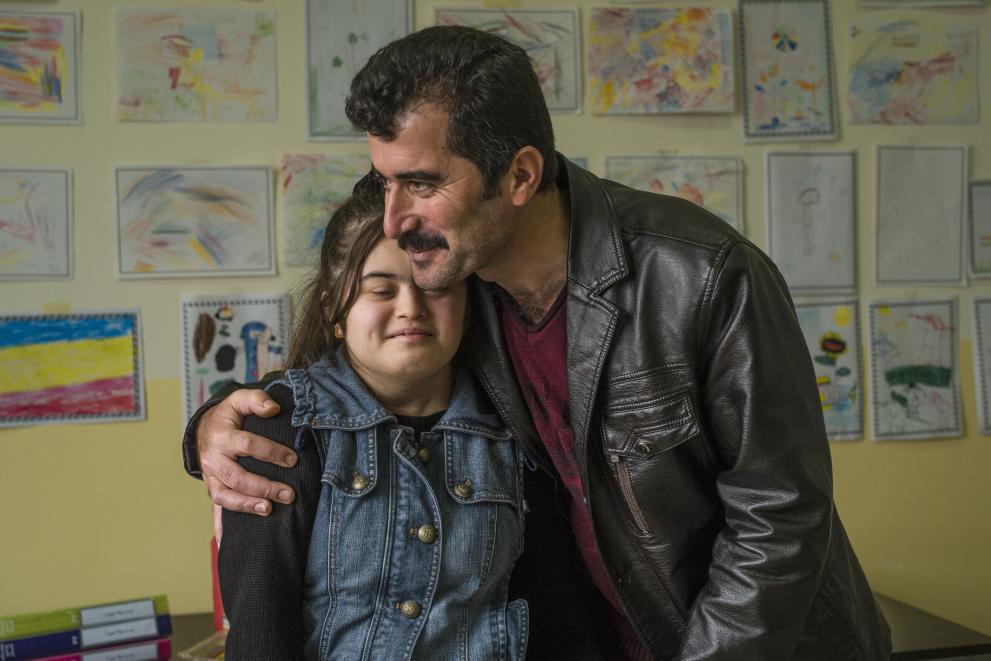
"I wish I could stay here. Because I really love my school."
Bita Kaifullah, 12, lives in Duhok, in the Kurdistan Region of Iraq.
When Bita was born, doctors told her parents she was not like other newborns and was diagnosed with Down Syndrome. Despite her parents’ sustained efforts to get her appropriate schooling, Bita was never accepted in regular schools in her area. Teachers would argue that she was in need of specialised education and that they could not provide it to her.
Ageed Kaifullah, Bita’s father, recalls: “We got in touch with the Education Department in Duhok. They gave us the address of the Awat Institute and we brought Bita to Madam Aveen.”
The Awat Institute hosts specialised departments for the visually-impaired, the deaf, mental health and autistic children in Duhok. This is where Bita is now schooled. Every morning, she gets ready to attend classes and learn to become independent.
“Her attitude has changed a great deal. Today, Bita can even go home by herself, just like a normal child would do,” adds Bita’s father.
Bita’s life has changed significantly, ever since she started going to this specialised school. She is a happy child who looks forward to better days ahead.
“I like it here. I will come tomorrow, as well. When I draw, all my teachers say well done to me,” she says with a smile.
The Awat Institute welcomes around 180 special need students like Bita and is part of the EUTF-funded QUDRA project. This project is helping nearly 600,000 Syrians and local communities in Iraq, Jordan, Lebanon and Turkey to become more resilient and part of a cohesive society.
